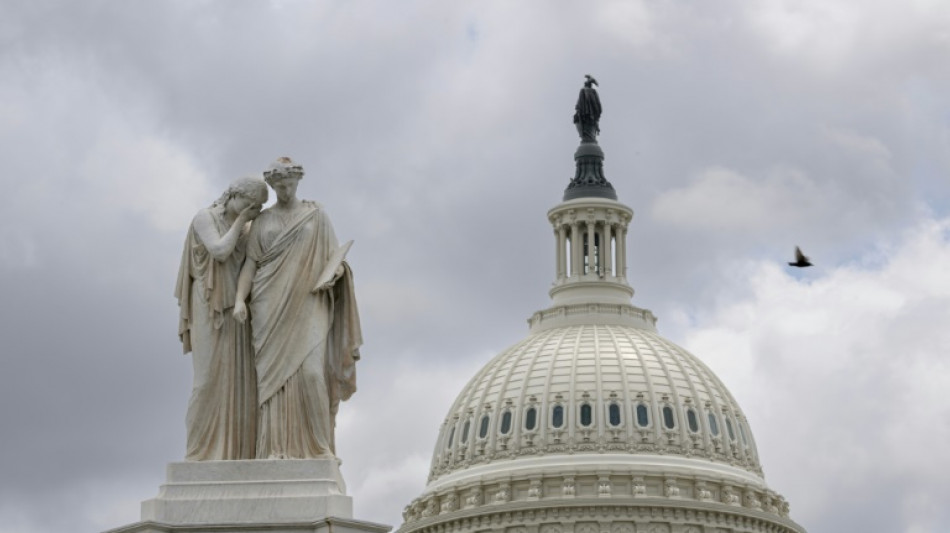
-
 Nigerian government frees 130 kidnapped Catholic schoolchildren
Nigerian government frees 130 kidnapped Catholic schoolchildren
-
Captain Kane helps undermanned Bayern go nine clear in Bundesliga

-
 Captain Kane helps undermanned Bayern go nine clear
Captain Kane helps undermanned Bayern go nine clear
-
Rogers stars as Villa beat Man Utd to boost title bid

-
 Barca strengthen Liga lead at Villarreal, Atletico go third
Barca strengthen Liga lead at Villarreal, Atletico go third
-
Third 'Avatar' film soars to top in N. American box office debut

-
 Third day of Ukraine settlement talks to begin in Miami
Third day of Ukraine settlement talks to begin in Miami
-
Barcelona's Raphinha, Yamal strike in Villarreal win

-
 Macron, on UAE visit, announces new French aircraft carrier
Macron, on UAE visit, announces new French aircraft carrier
-
Barca's Raphinha, Yamal strike in Villarreal win

-
 Gunmen kill 9, wound 10 in South Africa bar attack
Gunmen kill 9, wound 10 in South Africa bar attack
-
Allegations of new cover-up over Epstein files

-
 Atletico go third with comfortable win at Girona
Atletico go third with comfortable win at Girona
-
Schwarz breaks World Cup duck with Alta Badia giant slalom victory

-
 Salah unaffected by Liverpool turmoil ahead of AFCON opener - Egypt coach
Salah unaffected by Liverpool turmoil ahead of AFCON opener - Egypt coach
-
Goggia eases her pain with World Cup super-G win as Vonn takes third

-
 Goggia wins World Cup super-G as Vonn takes third
Goggia wins World Cup super-G as Vonn takes third
-
Cambodia says Thai border clashes displace over half a million

-
 Kremlin denies three-way US-Ukraine-Russia talks in preparation
Kremlin denies three-way US-Ukraine-Russia talks in preparation
-
Williamson says 'series by series' call on New Zealand Test future

-
 Taiwan police rule out 'terrorism' in metro stabbing
Taiwan police rule out 'terrorism' in metro stabbing
-
Australia falls silent, lights candles for Bondi Beach shooting victims

-
 DR Congo's amputees bear scars of years of conflict
DR Congo's amputees bear scars of years of conflict
-
Venison butts beef off menus at UK venues

-
 Cummins, Lyon doubts for Melbourne after 'hugely satsfying' Ashes
Cummins, Lyon doubts for Melbourne after 'hugely satsfying' Ashes
-
'It sucks': Stokes vows England will bounce back after losing Ashes

-
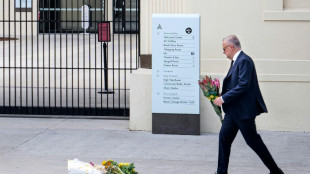 Australia probes security services after Bondi Beach attack
Australia probes security services after Bondi Beach attack
-
West Indies need 462 to win after Conway's historic century
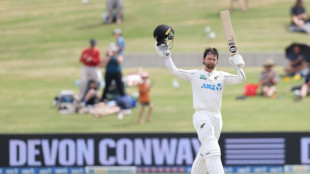
-
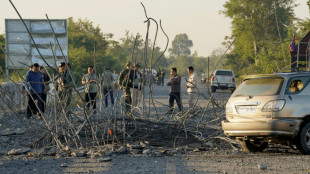 Thai border clashes displace over half a million in Cambodia
Thai border clashes displace over half a million in Cambodia
-
Australia beat England by 82 runs to win third Test and retain Ashes

-
 China's rare earths El Dorado gives strategic edge
China's rare earths El Dorado gives strategic edge
-
Japan footballer 'King Kazu' to play on at the age of 58
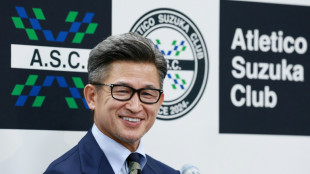
-
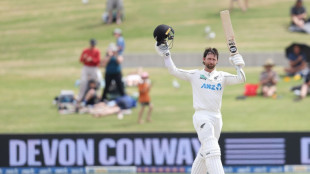 New Zealand's Conway joins elite club with century, double ton in same Test
New Zealand's Conway joins elite club with century, double ton in same Test
-
Australian PM orders police, intelligence review after Bondi attack
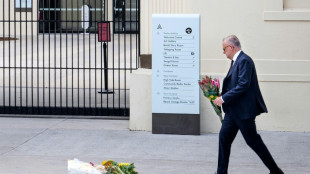
-
 Durant shines as Rockets avenge Nuggets loss
Durant shines as Rockets avenge Nuggets loss
-
Pressure on Morocco to deliver as Africa Cup of Nations kicks off
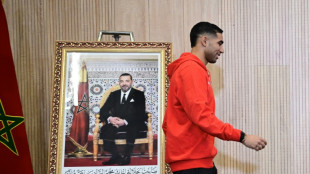
-
 Australia remove Smith as England still need 126 to keep Ashes alive
Australia remove Smith as England still need 126 to keep Ashes alive
-
Myanmar mystics divine future after ill-augured election

-
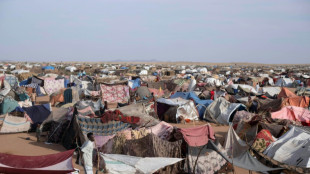 From the Andes to Darfur: Colombians lured to Sudan's killing fields
From the Andes to Darfur: Colombians lured to Sudan's killing fields
-
Eagles win division as Commanders clash descends into brawl

-
 US again seizes oil tanker off coast of Venezuela
US again seizes oil tanker off coast of Venezuela
-
New Zealand 35-0, lead by 190, after racing through West Indies tail

-
 How Can Gum Disease Lead to Tooth Loss in Kyle, TX?
How Can Gum Disease Lead to Tooth Loss in Kyle, TX?
-
West Indies 420 all out to trail New Zealand by 155

-
 Arteta tells leaders Arsenal to 'learn' while winning
Arteta tells leaders Arsenal to 'learn' while winning
-
Honour to match idol Ronaldo's Real Madrid calendar year goal record: Mbappe

-
 Dupont helps Toulouse bounce back in Top 14 after turbulent week
Dupont helps Toulouse bounce back in Top 14 after turbulent week
-
Mbappe matches Ronaldo record as Real Madrid beat Sevilla

-
 Gyokeres ends drought to gift Arsenal top spot for Christmas
Gyokeres ends drought to gift Arsenal top spot for Christmas
-
Arsenal stay top despite Man City win, Liverpool beat nine-man Spurs


Disinformation researchers lament 'chilling' US legal campaign
The study of disinformation has emerged as a political lightning rod in the United States, with conservative advocates launching a sweeping legal offensive that researchers fighting falsehoods denounce as an intimidation campaign ahead of the 2024 election.
As next year's vote approaches, many US academics and think-tanks focused on disinformation research are facing lawsuits by right-wing groups and inquiries from a Republican-led congressional panel.
The researchers -- including from the Stanford Internet Observatory and the University of Washington -- have worked on contentious subjects, including false claims that the 2020 election was stolen from Donald Trump and conspiracy theories about Covid-19 vaccines.
They are accused of colluding with the government to censor conservative speech online under the guise of fighting disinformation.
But the researchers deny those claims and say the bitter wrangle is seriously impacting their work, including efforts to raise funding.
Some researchers face subpoenas from the Republican-controlled House Judiciary Committee, demanding records including emails with government officials and social media platforms dating back to 2015, according to letters seen by AFP.
The analysts say the resource-draining requests and mounting legal costs are undermining the fight against disinformation, a problem that is likely to surge in the run up to next year's White House race.
"This is having a serious chilling effect on the work being done to research different forms of false and misleading information," one leading US researcher told AFP.
"Funding is being pulled and people are so tied up responding to requests for emails that the work has all but stopped for most people."
Coming on top of online trolling and threats of violence that disinformation researchers say they routinely face amid the hyperpolarized US political climate, the legal efforts amount to a "harassment tactic" that has taken a major toll on morale, another academic told AFP.
They were among four researchers who spoke to AFP on the condition of anonymity, citing safety and legal concerns.
- 'Very troubling' -
"It's remarkable and very troubling that a congressional panel that purports to be investigating censorship is engaged in the intimidation of researchers," said Jameel Jaffer, director of the Knight First Amendment Institute at Columbia University.
"There's nothing at all nefarious about researchers studying online speech... The panel should withdraw its sweeping demands, which undermine the very freedoms it says it is trying to protect."
Last month, firebrand conservative lawmaker Jim Jordan, head of the House Judiciary Committee, sent a letter to Stanford University threatening legal action unless the school complies with a subpoena for records.
In a statement to AFP, Stanford University said it was "deeply concerned about ongoing efforts to chill freedom of inquiry and undermine legitimate and much needed academic research in the areas of misinformation and disinformation -- both at Stanford and across academia."
In May, America First Legal, an advocacy group led by former Trump advisor Stephen Miller, filed a class-action lawsuit in Louisiana that he said was meant to strike at the heart of the "censorship-industrial complex."
Aside from academics from Stanford and the University of Washington, the group also sued researchers from the Digital Forensic Research Lab at the Atlantic Council think-tank and the research group Graphika.
The plaintiffs in the case include Jim Hoft, founder of the far-right conspiracy website Gateway Pundit.
Stanford's researchers face another lawsuit filed in Texas by anti-vaccine advocates, who allege their social media posts were repeatedly flagged as misinformation or removed entirely as part of what it called mass censorship.
- 'Dirty tricks' -
Organizations that research disinformation dispute that they have the power to censor social media accounts and deny any collusion with government agencies.
But that argument appears to be the central premise of the House of Representatives committee led by Jordan, a Trump ally who did not respond to AFP's request for comment but has publicly accused such organizations of "censorship of disfavored speech."
Last month, a Jordan-led subcommittee on the "weaponization of the federal government" concluded in a report that a cybersecurity agency within the Department of Homeland Security had been mobilized to censor Americans in collusion with "Big Tech and disinformation partners."
Amid the sustained backlash, President Joe Biden's administration appears to have backed away from some of its efforts to counter disinformation.
For example, the State Department-backed National Endowment for Democracy (NED) recently said it will stop funding the London-based Global Disinformation Index (GDI). NED told US media its grant was meant to combat disinformation from authoritarian regimes, particularly China.
Many disinformation researchers view the backlash against them as a deliberate strategy before the 2024 election.
"If you want to get away with dirty tricks next year, you need to get rid of this space," one researcher told AFP.
"The goal is to ensure that no one is scrutinizing the playing field before the next election."
D.Moore--AMWN



